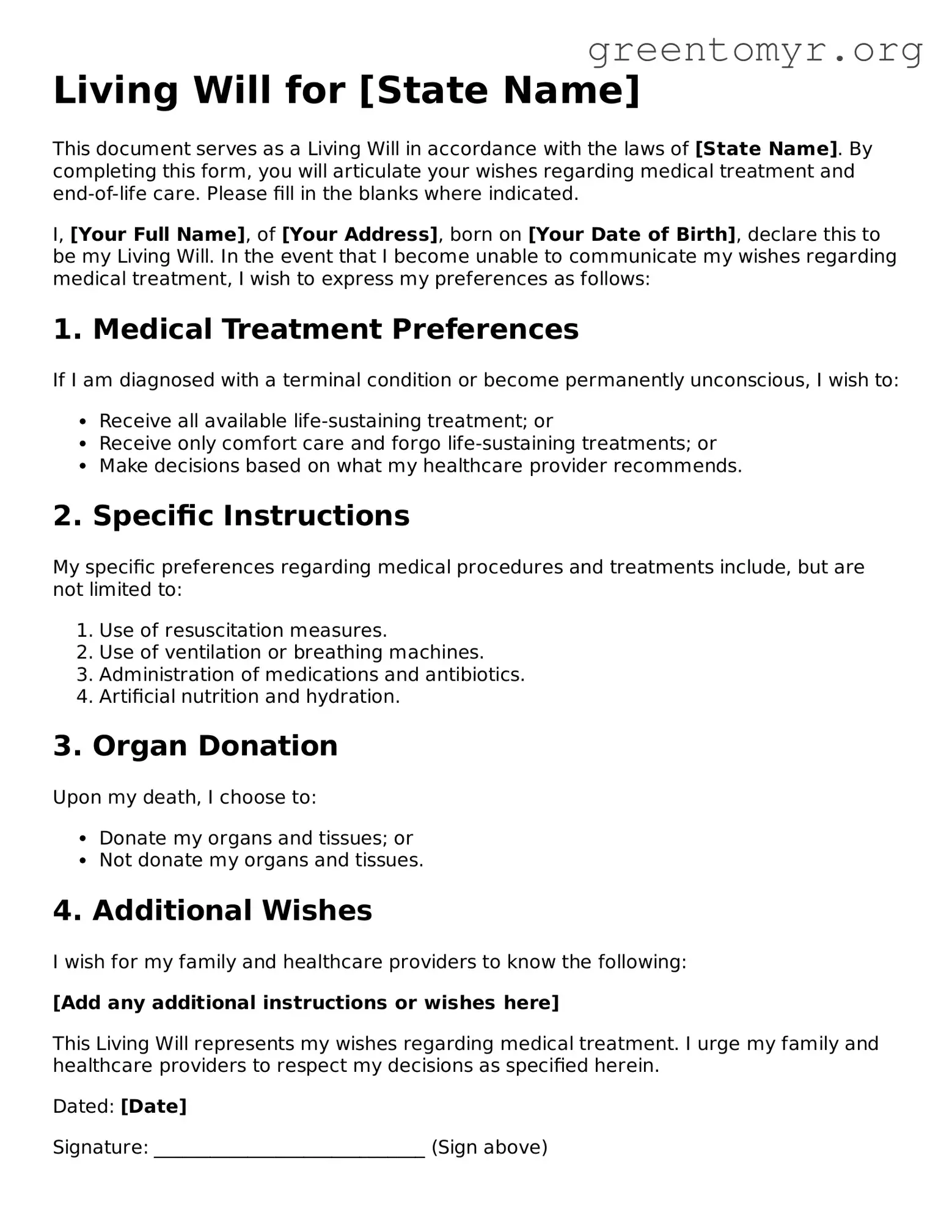Living Will for [State Name]
This document serves as a Living Will in accordance with the laws of [State Name]. By completing this form, you will articulate your wishes regarding medical treatment and end-of-life care. Please fill in the blanks where indicated.
I, [Your Full Name], of [Your Address], born on [Your Date of Birth], declare this to be my Living Will. In the event that I become unable to communicate my wishes regarding medical treatment, I wish to express my preferences as follows:
1. Medical Treatment Preferences
If I am diagnosed with a terminal condition or become permanently unconscious, I wish to:
- Receive all available life-sustaining treatment; or
- Receive only comfort care and forgo life-sustaining treatments; or
- Make decisions based on what my healthcare provider recommends.
2. Specific Instructions
My specific preferences regarding medical procedures and treatments include, but are not limited to:
- Use of resuscitation measures.
- Use of ventilation or breathing machines.
- Administration of medications and antibiotics.
- Artificial nutrition and hydration.
3. Organ Donation
Upon my death, I choose to:
- Donate my organs and tissues; or
- Not donate my organs and tissues.
4. Additional Wishes
I wish for my family and healthcare providers to know the following:
[Add any additional instructions or wishes here]
This Living Will represents my wishes regarding medical treatment. I urge my family and healthcare providers to respect my decisions as specified herein.
Dated: [Date]
Signature: _____________________________ (Sign above)
Witness 1: _____________________________ [Print Name]
Witness 2: _____________________________ [Print Name]
Acknowledgment of Notary Public (if required by state law):
State of [State Name], County of [County Name]
Subscribed and sworn to before me on this [Date].
________________________________
Notary Public Signature
My commission expires: [Expiration Date]
